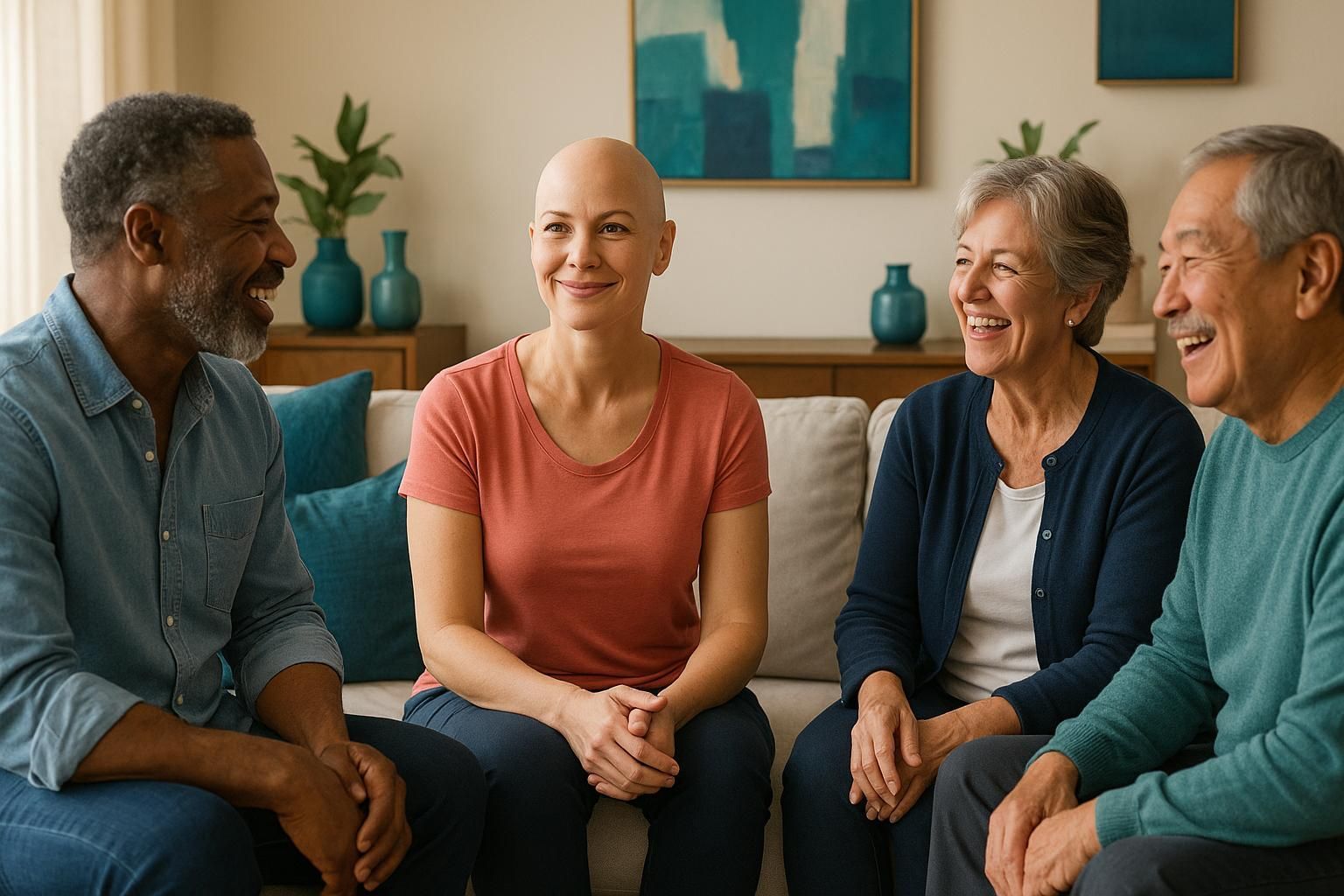Understanding Bowel Leakage: Causes, Symptoms, and Advanced Treatment Options
By Dr. Ritha Belizaire
QUICK INSIGHTS
What is fecal incontinence? It's the accidental leakage of stool, often called bowel leakage, due to weakened muscles or nerve problems around the rectum.
Most often, it affects older adults and may follow childbirth or surgery. Immediate expert care matters, as persistent symptoms can impact health, daily comfort, and dignity.
KEY TAKEAWAYS
- Nearly one in ten adults experiences some form of bowel leakage during their lifetime.
- Fecal incontinence can be triggered by aging, nerve injury, or chronic constipation.
- Treatments range from diet changes to advanced nerve stimulation and minimally invasive surgery.
- Compassionate specialists help patients regain control, independence, and confidence.
WHY IT MATTERS
Fecal incontinence often leads to embarrassment and social withdrawal, yet it's highly treatable with today's medical advances.
Understanding this condition is the first step to restoring your comfort, dignity, and freedom to enjoy daily activities with those you love.
Introduction
As a board-certified colorectal surgeon serving Houston, I know how deeply personal and disruptive fecal incontinence can feel.
Fecal incontinence is the accidental leakage of stool—often called bowel leakage—caused by weakened muscles or nerve problems around the rectum. This condition doesn't just affect your physical health. It can quietly erode your confidence, social life, and sense of dignity.
Many people, especially older adults or those who've had childbirth or surgery, find themselves missing out on family gatherings, church events, or even simple errands because of the constant worry about accidents.
Nearly one in ten adults will experience some degree of bowel leakage. Clinical researchconfirms that early intervention leads to better outcomes.
At Houston Community Surgical, I offer minimally invasive treatments, including in-office procedures under nitrous oxide for anxious patients, and prioritize fast, respectful appointments. Whether you're in the Medical Center or River Oaks, expert care for fecal incontinence in Houston is within reach.
You deserve comfort, privacy, and a path back to everyday confidence—let's talk openly about what helps.
What Is Fecal Incontinence?
Fecal incontinence—or accidental bowel leakage—means you can't always control when stool comes out.
This isn't just a minor inconvenience. It can feel like your body is playing a prank at the worst possible moment. The muscles and nerves around your rectum and anus are supposed to work together like a well-rehearsed orchestra, but when one section misses a beat, accidents can happen.
This condition is more common than most people realize. Nearly one in ten adults will experience some form of bowel leakage in their lifetime. It can range from occasional smears on your underwear to a complete loss of control. For some, it's a rare surprise; for others, it's a daily worry.
In my surgical practice, I often see patients who've spent years silently coping with bowel issues, not realizing how treatable their condition actually is. Many people feel embarrassed or alone, but you're not.
Fecal incontinence is a medical issue, not a personal failing. According to research, early recognition and treatment can make a world of difference in regaining control and confidence.
Common Symptoms of Fecal Incontinence
Bowel leakage doesn't always look the same for everyone. Here are the most common symptoms I see in my Houston office:
- Sudden, uncontrollable urges to have a bowel movement.
- Leaking stool when passing gas or during daily activities.
- Staining of underwear or unexpected soiling.
- Difficulty cleaning after a bowel movement.
- Feeling like you haven't fully emptied your bowels.
Some people also notice skin irritation or discomfort around the anus. In my experience, even mild symptoms can disrupt daily life and self-esteem.
If you find yourself planning outings around bathroom access, it's time to seek help.
When to Seek Medical Attention
If you experience sudden, severe bowel leakage, ongoing accidents that affect your daily life, or notice blood in your stool, contact a physician promptly.
Early evaluation may help prevent complications and improve your quality of life.
Emotional and Social Impact of Bowel Leakage
Let's be honest—bowel leakage isn't just a physical problem. It can feel like your social life is being held hostage by your own body. I've met patients who skip church, avoid travel, or even stop seeing friends because they're afraid of an accident.
The emotional toll is real. Many people feel shame, anxiety, or depression. You might worry about odors, visible stains, or losing control in public. It's not unusual to feel isolated, but you're not alone.
Studies show that the emotional burden of fecal incontinence can be as significant as the physical symptoms. In my years as a colorectal surgeon, I've seen how addressing both the emotional and physical sides of this condition helps people reclaim their lives.
Support, understanding, and the right treatment can restore not just continence, but confidence and joy.
What Causes Fecal Incontinence?
Fecal incontinence can sneak up for many reasons. The most common culprits I see include:
- Weakening of the anal sphincter muscles (often with age).
- Nerve damage from childbirth, surgery, or chronic straining.
- Chronic constipation or diarrhea.
- Rectal prolapse or scarring from previous procedures.
According to a systematic review, multiple studies have highlighted these as core causes, reinforcing the importance of comprehensive care.
Risk Factors in Older Adults
Aging is a major risk factor. As we get older, muscles lose strength and nerves may not fire as reliably.
Women who've had difficult childbirths or pelvic surgeries are especially at risk. I often remind my patients that these changes are common and nothing to be ashamed of.
Other Medical Conditions
Conditions like diabetes, stroke, or spinal cord injuries can also disrupt the nerves that control bowel movements.
Certain chronic illnesses, such as diabetes and multiple sclerosis, may contribute to fecal incontinence. Radiation treatments and specific medications can also play a role.
The underlying mechanisms of fecal incontinence are complex, involving both muscle and nerve dysfunction. In my practice, I always look for the root cause to tailor the best treatment plan.
How Is Fecal Incontinence Diagnosed?
Diagnosing bowel leakage starts with a conversation.
I'll ask about your symptoms, medical history, and how this is affecting your life. There's no judgment—just a focus on finding answers.
Initial Assessment & Questions
I typically ask about:
- Frequency and severity of leakage
- Stool consistency (hard, soft, or loose)
- Triggers (coughing, sneezing, or physical activity)
- Any history of childbirth, surgery, or nerve problems
Using standardized tools like the St. Marks (Vaizey) Score or the Wexner Score can also provide objective measures to assess severity and treatment efficacy.
Objective Severity Scores Explained
To measure severity and track progress, these tools help us set a baseline and see how treatments are working over time.
According to a recent clinical guideline, objective measures are essential in understanding patient needs and comparing outcomes.
In my experience, combining these scores with a thorough physical exam and sometimes specialized tests (like anorectal manometry or ultrasound) gives the clearest picture. This approach ensures we don't miss any treatable causes.
Treatment Options: From Conservative to Advanced
There's no one-size-fits-all solution for fecal incontinence.
I always start with the least invasive options and build from there, based on your needs and preferences.
Lifestyle & Diet Changes
Simple changes can make a big difference. I often recommend:
- Increasing fiber to firm up loose stools.
- Avoiding foods that trigger diarrhea (like caffeine or spicy foods).
- Keeping a regular bathroom schedule.
These steps are often enough for mild cases.
Pelvic Floor Therapy & Biofeedback
Physical therapy for the pelvic floor can strengthen the muscles that control bowel movements.
Biofeedback uses sensors to help you "see" how your muscles are working and improve control. Many of my patients find this empowering and effective.
Sacral Neuromodulation (Axonics)
For persistent cases, sacral neuromodulation is a minimally invasive procedure that uses a small device to stimulate the nerves controlling the bowel. Think of it like a pacemaker for your pelvic floor.
This treatment is FDA-approved and recommended by national guidelines for patients who don't respond to conservative measures.
I've seen remarkable improvements in patients who felt hopeless before trying this option. The procedure is done in-office or as a short outpatient surgery, and most people return to normal activities quickly.
Minimally Invasive Surgical Options
If other treatments don't work, options like sphincter repair or injectable bulking agents can help. I always discuss the risks and benefits so you can make an informed choice.
Recent research highlights new therapies and ongoing clinical trials for fecal incontinence, offering hope for even more effective treatments in the future.
In my practice, I focus on treatments that restore control with the least disruption to your life. I've found that a stepwise approach—starting with simple changes and moving to advanced therapies only when needed—gives the best results for most people.
Why See a Colorectal Surgeon Early?
Seeing a specialist early can save you years of frustration.
As a board-certified colorectal surgeon, I have advanced training in diagnosing and treating all forms of fecal incontinence, from mild to severe.
Early intervention means more options and better outcomes. I can offer in-office procedures, advanced nerve stimulation, and minimally invasive surgeries that aren't available in most general clinics.
In my experience, patients who seek help sooner often regain control faster and avoid complications like skin breakdown or infections.
Don't let embarrassment keep you from getting the care you deserve. My goal is to help you feel comfortable, respected, and confident every step of the way.
Fecal Incontinence Treatment in Houston: Dr. Belizaire's Unique Approach
Compassionate, Fast Access Care
At Houston Community Surgical, I prioritize privacy, dignity, and quick access to care.
I know how hard it is to talk about bowel leakage, so I offer same-day or next-day appointments and a judgment-free environment.
Minimally Invasive Treatments
I specialize in advanced, minimally invasive treatments—including sacral nerve stimulator trials and in-office procedures under nitrous oxide for anxious patients. My approach is always tailored to your comfort and needs.
I've found that offering these options in a familiar, supportive setting helps patients feel more at ease and leads to better outcomes. According to recent clinical guidelines, these advanced therapies are now considered first-line options for many patients.
Patient Experience Stories
Many of my patients tell me they wish they'd come in sooner.
After treatment, they're able to return to church, travel, and enjoy time with family without fear. While every journey is unique, the relief and renewed confidence are universal.
I'm committed to helping you find the right solution—whether that's a simple lifestyle tweak or the latest in nerve stimulation technology. My goal is always to restore your comfort, independence, and peace of mind.
Frequently Asked Questions about Fecal Incontinence
What are the most common causes of fecal incontinence?
The most common causes include weakened anal muscles, nerve damage (often from childbirth or surgery), and chronic constipation or diarrhea. Medical conditions like diabetes or stroke can also play a role.
Is fecal incontinence treatable, or will I have to live with it?
Fecal incontinence is highly treatable. Most people improve with conservative measures, and advanced therapies are available for persistent cases. New treatments are being studied in clinical trials, offering hope for even more options.
How is the severity of my condition measured?
Physicians use standardized scores like the St. Marks (Vaizey) or Wexner Score to assess severity and track progress. These tools help guide treatment and monitor improvement over time.
Are there new treatments on the horizon?
Yes! Ongoing research is exploring cell therapy and other innovative approaches for chronic fecal incontinence. While not yet widely available, these advances may expand future options.
Does fecal incontinence affect children or just adults?
While most common in adults, children can also experience fecal incontinence, often due to different causes. Specialized care is available for all ages, and research continues to improve outcomes for younger patients.
What should I do if I'm embarrassed to talk about bowel leakage?
You're not alone—embarrassment is common. I encourage you to reach out anyway. Compassionate, confidential care is available, and early treatment can make a big difference.
Voices from Our Houston Community
Hearing directly from patients is one of the most meaningful parts of my work as a colorectal surgeon.
Real experiences remind me why compassionate, expert care matters so much—especially when it comes to sensitive issues like bowel leakage.
I recently received feedback that captures what we aim to provide for every patient who walks through our doors. Sarah shared her thoughts after her care at Houston Community Surgical:
"Dr. Belizaire is awesome. I recommend her 100% because of her excellent bedside manner, operative skills, and experience. She is also just a top-notch human being. Thank you for taking care of me, Dr. Belizaire!!!" — Sarah
You can read more Google reviews here.
Sarah's words reflect the heart of my approach—combining advanced treatments with genuine kindness and respect. If you're struggling with fecal incontinence, know that you're not alone and that help is available.
Fecal Incontinence Care in Houston
Living in Houston means you have access to some of the most advanced options for treating fecal incontinence, right in your own backyard.
Our city's diverse population and active lifestyle can make bowel leakage especially disruptive, whether you're enjoying a day at Hermann Park or attending a family gathering.
Houston is home to respected medical centers like the Texas Medical Center, reflecting the city's leadership in healthcare. This commitment to excellence extends to specialized colorectal care, where advanced treatments and compassionate support are readily available.
Houston's climate and rich food culture sometimes add extra challenges for those managing bowel control, but the good news is that specialized care is close at hand.
At Houston Community Surgical, I offer minimally invasive treatments and same-day appointments to help you get back to the activities you love—without fear or embarrassment.
Serving patients from Midtown Houston to the Medical Center, I'm committed to providing fast, respectful, and expert care tailored to our community's needs. If you're ready to take the next step, call 832-979-5670 to schedule a confidential appointment, or visit us for a virtual second opinion if you're outside the area.
Conclusion
Fecal incontinence can feel like an unwelcome guest, but you don't have to let it run your life.
In summary, today's treatments—from simple lifestyle tweaks to advanced options like sacral neuromodulation—offer real hope for regaining control and confidence. My approach as a board-certified colorectal surgeon focuses on compassionate care, minimally invasive solutions, and helping you feel comfortable every step of the way.
I offer in-office procedures under nitrous oxide for anxious patients, and I specialize in treating not just fecal incontinence, but also rectal prolapse and colorectal cancer.
Houston's nationally recognized healthcare community, which includes Baylor College of Medicine, sets a high standard for patient care—a standard I'm proud to uphold at Houston Community Surgical.
If you're ready to stop missing out on life's moments, call me at 832-979-5670 for a same-day or next-day appointment in Houston. Not local? I also offer virtual second opinions at www.2ndscope.com—so expert help is always within reach.
For more on the latest therapies and outcomes, recent systematic reviews highlight the effectiveness of modern treatments. As Houston's trusted colorectal specialist, I'm here to help you reclaim your comfort and dignity.
This article is for educational purposes only and should not be used as a substitute for professional medical advice, diagnosis, or treatment. Always seek the advice of your physician or other qualified healthcare provider with any questions you may have regarding a medical condition or treatment options. Never disregard professional medical advice or delay in seeking it because of something you have read in this article.
Frequently Asked Questions
What is fecal incontinence, and can it really be treated?
Fecal incontinence is accidental bowel leakage caused by weakened muscles or nerve issues around the rectum.
The good news is, it's highly treatable. Most people see improvement with dietary changes, pelvic floor therapy, or advanced options like nerve stimulation. My goal is to help you regain control and enjoy daily life again.
How do you help anxious patients feel comfortable during office procedures?
I understand that anxiety is common, especially with sensitive conditions.
That's why I offer in-office procedures under nitrous oxide ("laughing gas") to help you relax. My approach is always gentle, private, and focused on your dignity—so you can get the care you need without added stress.
Where can I find fast, specialized care for bowel leakage in Houston?
You can schedule a same-day or next-day appointment with me at Houston Community Surgical by calling 832-979-5670.
I provide advanced, minimally invasive treatments for fecal incontinence and related conditions, all in a supportive, judgment-free environment. If you're outside Houston, I also offer virtual second opinions to make expert care accessible wherever you are.
Near the end of this article, you may want to subscribe to my colorectal health newsletter to stay updated on the latest in treatments and healthcare news.
SHARE ARTICLE:
SEARCH POST:
RECENT POSTS:






